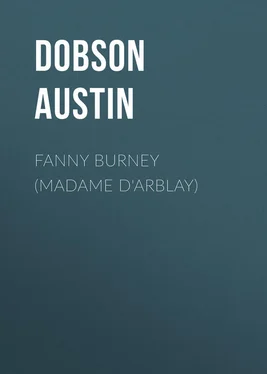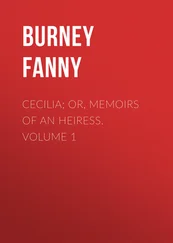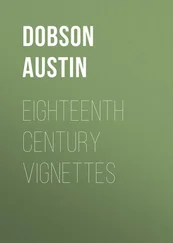Austin Dobson - Fanny Burney (Madame D'Arblay)
Здесь есть возможность читать онлайн «Austin Dobson - Fanny Burney (Madame D'Arblay)» — ознакомительный отрывок электронной книги совершенно бесплатно, а после прочтения отрывка купить полную версию. В некоторых случаях можно слушать аудио, скачать через торрент в формате fb2 и присутствует краткое содержание. Издательство: Иностранный паблик, Жанр: foreign_antique, foreign_prose, на английском языке. Описание произведения, (предисловие) а так же отзывы посетителей доступны на портале библиотеки ЛибКат.
- Название:Fanny Burney (Madame D'Arblay)
- Автор:
- Издательство:Иностранный паблик
- Жанр:
- Год:неизвестен
- ISBN:нет данных
- Рейтинг книги:5 / 5. Голосов: 1
-
Избранное:Добавить в избранное
- Отзывы:
-
Ваша оценка:
- 100
- 1
- 2
- 3
- 4
- 5
Fanny Burney (Madame D'Arblay): краткое содержание, описание и аннотация
Предлагаем к чтению аннотацию, описание, краткое содержание или предисловие (зависит от того, что написал сам автор книги «Fanny Burney (Madame D'Arblay)»). Если вы не нашли необходимую информацию о книге — напишите в комментариях, мы постараемся отыскать её.
Fanny Burney (Madame D'Arblay) — читать онлайн ознакомительный отрывок
Ниже представлен текст книги, разбитый по страницам. Система сохранения места последней прочитанной страницы, позволяет с удобством читать онлайн бесплатно книгу «Fanny Burney (Madame D'Arblay)», без необходимости каждый раз заново искать на чём Вы остановились. Поставьте закладку, и сможете в любой момент перейти на страницу, на которой закончили чтение.
Интервал:
Закладка:
The retreat he selected was at Chessington, or – as it was then spelled – Chesington Hall, a rambling and ruinous old house between Kingston and Epsom. At this date, though on high ground, it stood in the middle of a wild and almost trackless common, which separated it effectually from the passing stranger. Its owner, Mr. Christopher Hamilton, was an old friend of Crisp and, since the house was too large for his means, only too pleased to welcome as an inmate, a companion who would share his expenses. At Chessington Crisp lived many years, and at Chessington he was buried. Until he became too infirm, he quitted it annually for a few weeks every spring, when he repaired to Town to visit his old haunts, look in at a concert or two, and run through the principal picture galleries. Lord Macaulay has described him as “hiding himself like a wild beast in a den,” in consequence of the failure of his tragedy, which – as we have seen – was rather indulgently received, at all events on the stage. 6 6 Crisp’s Virginia was published anonymously by Tonson in 1754 with a dedication to the writer’s friends, the Earl and Countess of Coventry.
But Lord Macaulay had not before him all the information we have at present. Although Crisp rated his tragic powers too high, and consequently felt his qualified success more acutely, it is probable that impaired health and reduced means had most to do with his withdrawal to Chessington; and there is no particular evidence that his seclusion, though strict, was savage. In one of his periodical visits to London, he happened upon Burney; came at once to see him at Poland Street; grew keenly interested in his motherless children, and thenceforward continued to be the lifelong ally and adviser of the family. Chessington Hall became a haven of rest for the Burneys, – “a place of peace, ease, freedom and cheerfulness,” to which, even when it was later turned into a boarding-house by Miss Hamilton, the father retired to work at his books, and the children for change of air. As Crisp grew older, they grew more and more necessary to his existence, filling the dark passages and tapestried chambers of the old house with fiddles and harpsichords, dancing, amateur acting, and all the stir and bustle of their fresh and healthy vitality. Their company must have been invaluable to a host, contracted, but by no means wedded, to melancholy; and there is no doubt that in return his experience of the world, his sterling good sense, and his educated taste were of the greatest service to them. They brightened and cheered his life; but they also owed not a little to the personage whom, in brief space, they came to designate affectionately as “Daddy” Crisp.
For two or three years after Mrs. Burney’s death not much is known of her husband’s doings. His grief at first was intense; but like many sensible men, he at once sought to mitigate it by hard work, attempting among other things a prose translation of Dante’s Inferno . In June, 1764, he paid a short visit to Paris in order to place Hetty and Susan at school there. Fanny was older than Susan, but apart from her general backwardness, her father seems to have apprehended that her very emotional character (she had been overpowered with grief at her mother’s death) might, when on the Continent, perhaps induce her to adopt the creed of her grandmother, Mrs. Sleepe, to whom she was much attached. In the French capital, Charles Burney found many friends, and under the influence of Paris air, Paris clothes, Paris festivities and the Comédie Italienne , began speedily – like Garrick in the same place a few months afterwards – to recover his spirits, and interest himself once more in his old pursuits. Either now or later, he set to work upon a version of Rousseau’s musical intermède , the Devin du Village , under the title of The Cunning Man . 7 7 The Cunning Man ( i. e. fortune-teller or soothsayer) was produced at Drury Lane in 1766 when Rousseau came to England, but it was coldly received ( Biographia Dramatica , 1812, ii. 145).
Towards the end of June, he left Hetty and Susan in the care of a certain Mme. St. Mart. They remained at Paris for about two years, returning in 1767.
The first diarist of the family appears to have been Susan Burney, who began her records at the early age of ten. Soon after her return home she sketched the portraits of her two elder sisters. “The characteristics of Hetty seem to be wit, generosity, and openness of heart: – Fanny’s, – sense, sensibility, and bashfulness, and even a degree of prudery. Her understanding is superior, but her diffidence gives her a bashfulness before company with whom she is not intimate, which is a disadvantage to her. My eldest sister shines in conversation, because, though very modest, she is totally free from any mauvaise honte : were Fanny equally so, I am persuaded she would shine no less. I am afraid that my eldest sister is too communicative, and that my sister Fanny is too reserved. They are both charming girls — des filles comme il y en a peu .” 8 8 In Letter lxiv. of Evelina , Miss Burney, applying this locution to Lord Orville, attributes it to Marmontel. The above passage is printed in the “Introduction” to the Diary and Letters , 1892, i. pp. xi-xii.
The words make one think that the composing of Caractères or Portraits must have formed part of Mme. St. Mart’s curriculum . At all events they are all we know of Frances Burney at this time, and they coincide with what we have learned already. Doubtless, during the absence of her sisters in France, she had been slowly developing. To her busy father, although he left her much to herself, she was devotedly attached; and she had grown almost as fond of the adopted parent who had now become her “guide, philosopher and friend.” When Hetty and Susan were away, she probably saw a great deal of Mr. Crisp, and in the beginning of 1766 paid her first visit to the “dear, ever dear Chesington” which was to figure so frequently in her future journals. It had been her father’s intention that she and her younger sister Charlotte should also have the advantage of two years’ schooling at Mme. St. Mart’s establishment; but the project, first postponed, was afterwards abandoned in consequence of Mr. Burney’s second marriage.
This took place in October, 1767. The lady, Elizabeth Allen, was the widow of a wealthy Lynn wine-merchant. She had been the intimate friend of the late Mrs. Burney, whose death she had deplored almost as much as Mrs. Burney’s husband. She had three children; but, owing to losses in her widowhood, apparently possessed nothing but a dower-house in the churchyard of St. Margaret’s at Lynn. Coming to London for the education of her eldest daughter, Maria, she renewed her acquaintance with the Burneys. Handsome, intelligent, well-read, and something of a blue-stocking to boot, she seems speedily to have inspired in Mr. Burney an affection as genuine as her own for him. But as her Lynn relatives were not likely to approve the match, seeing particularly that Mr. Burney had six children of his own, the marriage took place privately at St. James’s, Piccadilly; and the newly wedded pair, with the connivance of the friendly Crisp, spent their honeymoon in a farm-house near Chessington. Even then, the matter was kept quiet, being only revealed at last by the misdelivery of a letter. After this, the second Mrs. Burney took her place definitively as the mistress of the Poland Street home, and the Lynn dower-house became an additional holiday resort for the combined family. The children on both sides seem to have been delighted with an alliance which brought them more intimately together; and the new mamma increased rather than diminished the literary tone of the house. “As Mrs. Stephen Allen,” says Mrs. Ellis, “she had held a sort of bas bleu meeting once a week; as Mrs. Burney, she received men of letters, or art, almost daily, in an informal way.” One result of the marriage, as already stated, was that Fanny and Charlotte did not go to Paris. Charlotte was put to school in Norfolk; and it was arranged that Susanna should teach Fanny French.
Читать дальшеИнтервал:
Закладка:
Похожие книги на «Fanny Burney (Madame D'Arblay)»
Представляем Вашему вниманию похожие книги на «Fanny Burney (Madame D'Arblay)» списком для выбора. Мы отобрали схожую по названию и смыслу литературу в надежде предоставить читателям больше вариантов отыскать новые, интересные, ещё непрочитанные произведения.
Обсуждение, отзывы о книге «Fanny Burney (Madame D'Arblay)» и просто собственные мнения читателей. Оставьте ваши комментарии, напишите, что Вы думаете о произведении, его смысле или главных героях. Укажите что конкретно понравилось, а что нет, и почему Вы так считаете.












